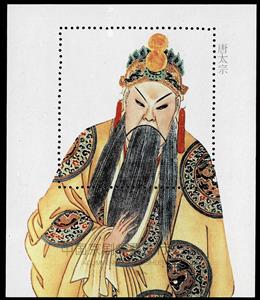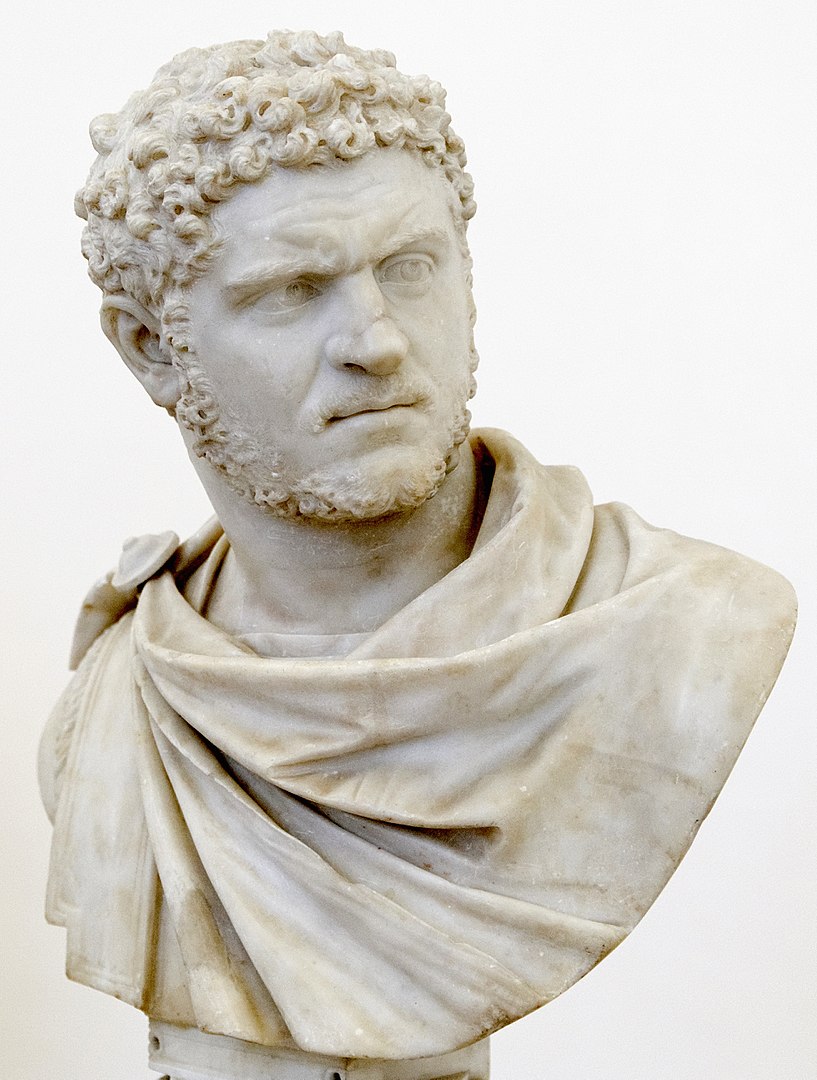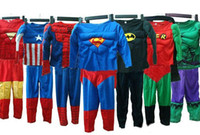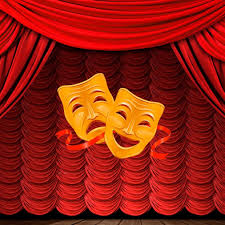Souvenir Sheet: Emperor Taizong of Tang Dynasty (China, People's Republic 2007)
Emperor Taizong of Tang Dynasty (China, People's Republic 2007)
01 January (China, People's Republic ) within release Chinese Peking Opera goes into circulation Souvenir Sheet Emperor Taizong of Tang Dynasty face value None No Face Value
| Souvenir Sheet Emperor Taizong of Tang Dynasty in catalogues | |
|---|---|
| Colnect codes: | Col: CN 2007-01/01 |
Souvenir Sheet is square format.
Also in the issue Chinese Peking Opera:
- Souvenir Sheet - Emperor Taizong of Tang Dynasty face value None;
- Souvenir Sheet - General Son face value None;
- Souvenir Sheet - Gongsun Zan face value None;
- Souvenir Sheet - Hua Feng Chun face value None;
- Souvenir Sheet - Qin Ren face value None;
- Souvenir Sheet - Wang Bodang face value None;
- Souvenir Sheet - Wu Bao face value None;
- Souvenir Sheet - Wu Yunzhao face value None;
Souvenir Sheet Emperor Taizong of Tang Dynasty it reflects the thematic directions:
Customs is an authority or agency in a country responsible for collecting tariffs and for controlling the flow of goods, including animals, transports, personal effects, and hazardous items, into and out of a country. Traditionally, customs has been considered as the fiscal subject that charges customs duties (i.e. tariffs) and other taxes on import and export. In recent decades, the views on the functions of customs have considerably expanded and now covers three basic issues: taxation, security, and trade facilitation
The word emperor (from Latin: imperator, via Old French: empereor) can mean the male ruler of an empire. Empress, the female equivalent, may indicate an emperor's wife (empress consort), mother/grandmother (empress dowager/grand empress dowager), or a woman who rules in her own right and name (empress regnant or suo jure). Emperors are generally recognized to be of the highest monarchic honour and rank, surpassing king. In Europe, the title of Emperor has been used since the Middle Ages, considered in those times equal or almost equal in dignity to that of Pope due to the latter's position as visible head of the Church and spiritual leader of the Catholic part of Western Europe. The emperor of Japan is the only currently reigning monarch whose title is translated into English as "Emperor"
Famous People refers to the fame and public attention accorded by the mass media to individuals or groups or, occasionally, animals, but is usually applied to the persons or groups of people (celebrity couples, families, etc.) themselves who receive such a status of fame and attention. Celebrity status is often associated with wealth (commonly referred to as fame and fortune), while fame often provides opportunities to make money.
In clothing, a suit is a set of garments made from the same cloth, usually consisting of at least a jacket and trousers. Lounge suits (also known as business suits when sober in colour and style), which originated in Britain as country wear, are the most common style of Western suit. Other types of suit still worn today are the dinner suit, part of black tie, which arose as a lounging alternative to dress coats in much the same way as the day lounge suit came to replace frock coats and morning coats; and, rarely worn today, the morning suit. This article discusses the lounge suit (including business suits), elements of informal dress code.
Theatre or theater is a collaborative form of performing art that uses live performers, usually actors or actresses, to present the experience of a real or imagined event before a live audience in a specific place, often a stage. The performers may communicate this experience to the audience through combinations of gesture, speech, song, music, and dance. It is the oldest form of drama, though live theatre has now been joined by modern recorded forms. Elements of art, such as painted scenery and stagecraft such as lighting are used to enhance the physicality, presence and immediacy of the experience. Places, normally buildings, where performances regularly take place are also called "theatres" (or "theaters"), as derived from the Ancient Greek θέατρον (théatron, "a place for viewing"), itself from θεάομαι (theáomai, "to see", "to watch", "to observe").





